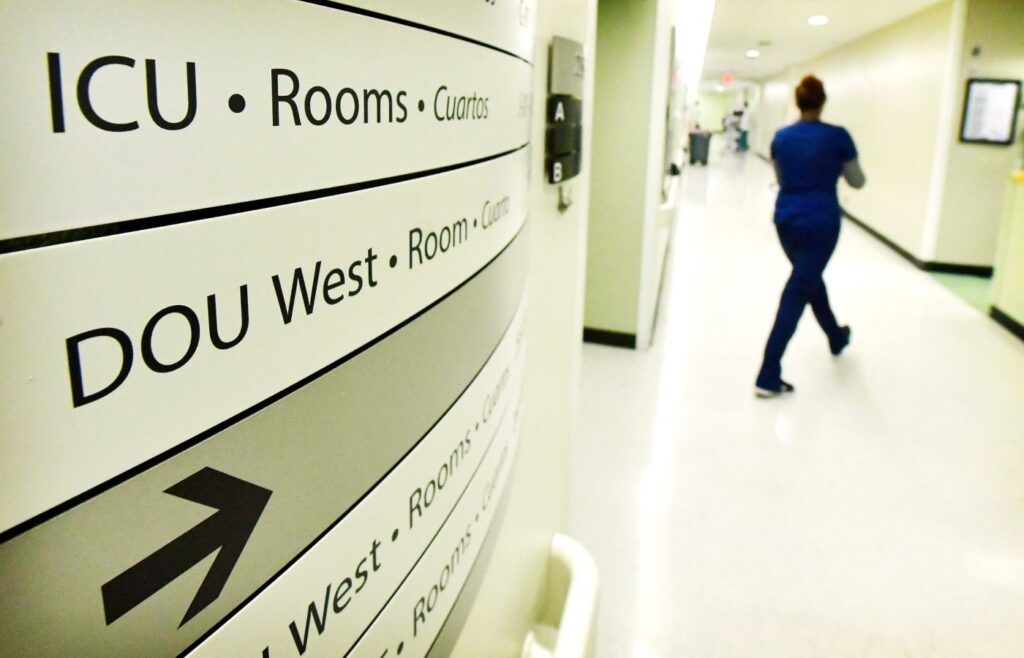
Among the leading factors that drive people into homelessness are poor health and a lack of healthcare. Too often illness and injury lead to the loss of work and income, devastating family finances and leaving rent and mortgages unpaid. Recent research has also found that medical debt is another leading contributor to people becoming unhoused.
For the unhoused population, life on the streets causes increased levels of illness and injury, preventing people from lifting themselves back into the workforce or into housing, trapping them in a cycle of despair. Our foundation’s mission is to disrupt the cycle of homelessness by providing a comprehensive safety net of client-centered services, and healthcare is a cornerstone of our work.
At our six recuperative care centers in Los Angeles, Orange, Riverside, and San Bernardino counties — where 52% of California’s 170,000 unhoused residents live — we provide safe bridge housing where people experiencing homelessness can recuperate after being discharged from emergency rooms or hospital stays. Too often, unhoused patients are discharged right back onto the street, where they are unable to heal, trapping them further in homelessness.
Our recuperative care model saves the healthcare system money, reduces emergency room visits and hospitalizations, and increases individuals’ connections to resources to support their pathway to housing. Registered nurses are essential to our work, as they are to the statewide provision of the preventative and emergency care that people at risk of homelessness and people living unhoused need.
California today, however, has 40,000 fewer nurses than is required to meet patient demand. COVID-19 accelerated the statewide nursing crisis. While the hospital vacancy rate for nurses was just 6% before the pandemic, according to the Hospital Association of Southern California the rate currently exceeds 30%, with the latest California Board of Registered Nursing survey reporting higher rates of burnout.
Without changes to the status quo, by 2030 – in just seven years – the nursing shortage will rise to 193,000.
On October 5, a committee of the California Board of Registered Nursing will vote to recommend to the full board whether to limit enrollment at many of the state’s nursing colleges and universities.
Today, more than 60% of qualified nursing applicants cannot enroll in a California nursing education program because of a current lack of capacity. Accordingly, it is essential that the Board of Registered Nursing does not act to further reduce nursing education opportunities in our state.
Related Articles
Few California workers belong to unions, but they scored big in Legislature this year
It’s time for Americans to take the keys away from Joe Biden and Donald Trump
Sacramento demonstrates perils of a supermajority with slew of harmful bills
Judge Jim Gray: A proposal for serious immigration reform
What needs to be done about fentanyl?: Letters
Maintaining nursing enrollments would also follow the state legislature’s mandate that the board “should continue its efforts in increasing the number of RN graduates by… working with schools, colleges and universities to promote, create or expand nursing programs… And find ways to increase access to nursing programs especially for socioeconomically disadvantaged students.”
Our state’s crisis of homelessness is also driven by the erosion of wages and the hollowing out of core middle class industries combined with the skyrocketing cost of housing and living.
A nursing career represents a pathway to financial stability. Indeed, research shows that registered nurses have higher rates of homeownership, even in California. The latest numbers from the U.S. Bureau of Labor Statistics show that a Registered Nurse in California earns an average annual salary of $133,340 — the highest rate of pay in the nation. Maintaining — and then expanding — the availability of nursing education programs is essential to patient care and to addressing California’s crisis of homelessness.
At its October committee meeting — and at the full meeting of the Board in November — the Board of Registered Nursing has the opportunity to help reverse our nursing shortage and the extensive fallout it causes all across our state.
Pooja Bhalla is a Registered Nurse who earned a Doctorate in Nursing Practice. She is CEO of Illumination Foundation.
